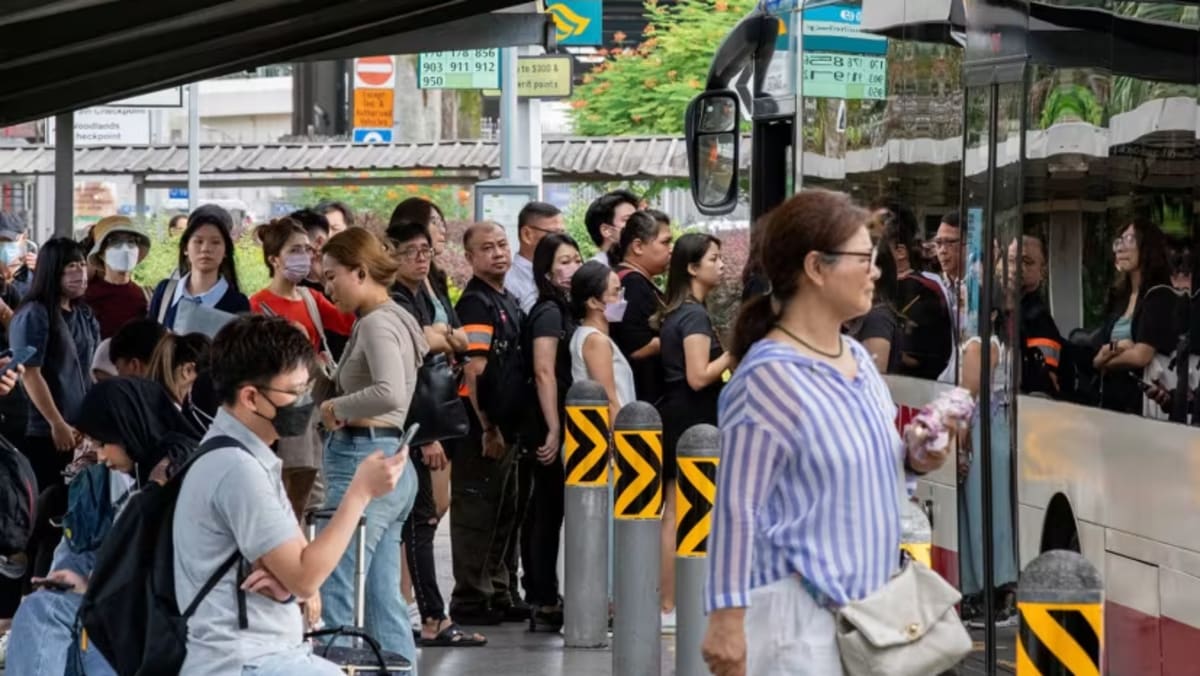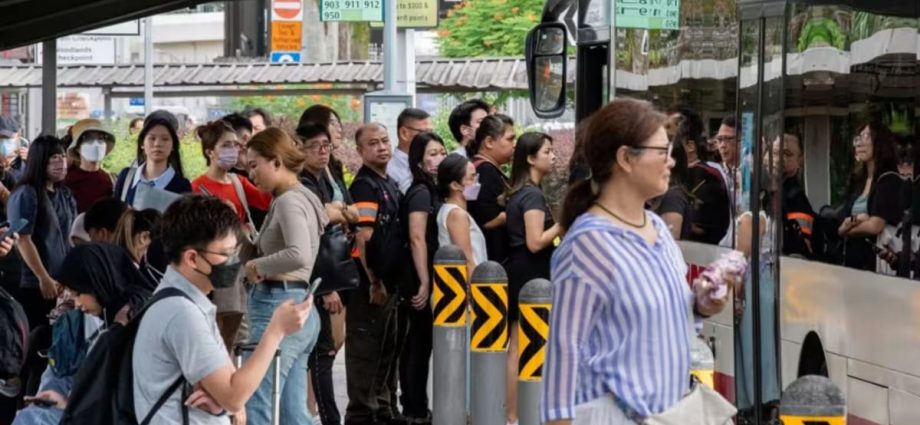
SINGAPORE: Despite having a successful sales career, a workplace with supportive colleagues, and a stable relationship in Malaysia, Ms Anna Chin still felt something was missing.
And so, like many of her fellow compatriots with big dreams, the Malaysian started considering looking southwards: Singapore.
“I got hold of an opportunity from a recruiter, which made me contemplate whether moving to Singapore would be a good decision,” she told TODAY.
“Since Singapore and Malaysia have similar cultures, food and languages, I thought it would be nice to have the opportunity to work overseas but in a place that doesn’t feel too different from home.”
Ms Chin, who holds a bachelor’s degree in science, thought she could benefit from the regional experience. She had expected to stay in Singapore for just a few years and then head home.
Fast forward to six years later, the 33-year-old medical sales executive is now a Singapore permanent resident, happily married to a Singaporean, and is looking for a flat as her forever home here.
Considering how her life had taken an unexpected turn since she uprooted herself, Ms Chin said she plans to have children and settle down in Singapore for good.
“After moving, I feel less connected to home. I miss my family. It’s a little sad that I am the only one missing out on important events and gatherings like Chinese New Year and birthdays,” she said.
“But my life is here now, and to the Chinese, it’s customary to follow and stay with your husband’s side of the family.”
Ms Chin has three siblings, aged 31, 45 and 48, all still living in their hometown of Ipoh.
Ms Chin’s experience will surely resonate with the Malaysian diaspora residing and working in Singapore.
Take Ms Audrey Yeap, for example. The 30-year-old, who works as a senior executive in branch operations at a local bank, married a Singaporean citizen after working and living in Singapore for seven years.
The Ipoh native moved to the Lion City in 2016 right after graduating from university, having no prior work experience in Malaysia other than a three-month internship in Kuala Lumpur.
“When I was just a kid, my parents took me to Singapore for the holidays. Back then, I didn’t know anything about the currency exchange rate or the strength of the dollar,” she told TODAY.
“All I knew was a PlayStation Portable cost about S$200 then, but in Malaysia, it was around RM800. I only understood figures, and thought it would be great to live in a place where I didn’t have to pay so much for things I wanted.”
As she grew older, Ms Yeap eventually realised that earning Singapore dollars would mean increased spending power, thus reinforcing her belief that Singapore was an attractive country to relocate to.
Conversely, Malaysian technology start-up founder Joshua Lee (not his real name), 40, had never considered moving to Singapore all his life. Still, he found himself mulling over it after being offered the role of chief technology officer at a local firm more than two years ago.
“My business was affected after COVID-19, and I had to make a decision to protect the well-being of my staff,” said Mr Lee, who declined to be named.
“So when a Singaporean boss offered to buy my company and relocate me to work for him in the Singapore office while retaining all 13 workers to work from home in Malaysia, I accepted it.”
Last year, Malaysia’s then human resources minister V Sivakumar, said that as of 2022, 1.13 million out of 1.86 million Malaysians who migrated abroad were living in Singapore.
While Singapore alone absorbs over 60 per cent of Malaysia’s diaspora, most of the remainder reside in countries located on the other side of the world, such as the United Kingdom and the United States.
Ms Anna Lim, 32, is one of them. Now based in California, she said that many of her friends had left Malaysia for Singapore in search of better pay and opportunities.
“Even growing up, I was encouraged to find work elsewhere, such as Singapore or China. Also, I am interested in game development and the entertainment industry, and I am more likely to find a high-paying job in those industries in the US than in Malaysia,” she said
“Malaysia still does not value the arts in the way it should, even though many game studios are based there. Unfortunately, money talks.”
Before being retrenched recently, Ms Lim, who hails from Penang, was a data analyst at a television technology company in San Francisco.
Although many young, bright Malaysians grow up under their home country’s education system, they may harbour dreams and aspirations that cannot be fulfilled at home. Hence, countries as near as Singapore and as far as the US become talent magnets.
But what does this mean for Malaysia if a significant proportion of its young, skilled labour force seeks long-term work outside of the country with the possibility of permanent relocation?
A Malaysia governmental study in 2022, released last week, revealed that more than half of the Malaysian diaspora in Singapore have tertiary-level qualifications.
Of those employed here, nearly three in four, or 74 per cent, are skilled and semi-skilled workers.
A media statement released by the Malaysian authorities about the study warned of the “adverse effects” of the brain drain as skilled workers leave the country.
TODAY looks at the broader implications of this talent outflow on Malaysia’s workforce and economy, and how this may adversely impact Singapore if the phenomenon continues on a greater scale.
SEEKING GREENER PASTURES IN SINGAPORE
Malaysians working in Singapore and Brunei are generally attracted by good job prospects, stable employment, attractive salaries and an advantageous exchange rate, according to the Malaysian government study released on Feb 19.
It was conducted by the Department of Statistics Malaysia, an agency under the Prime Minister’s Department, and the Ministry of Economy.

